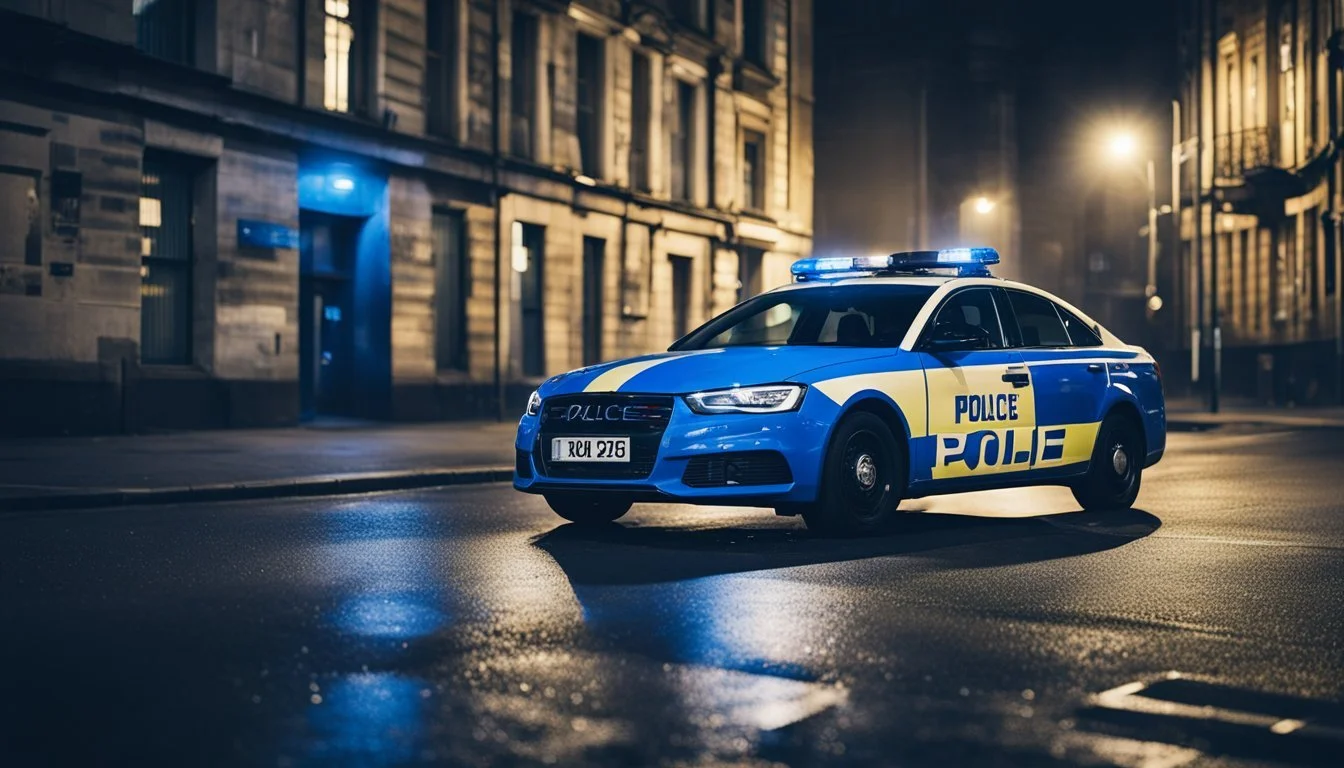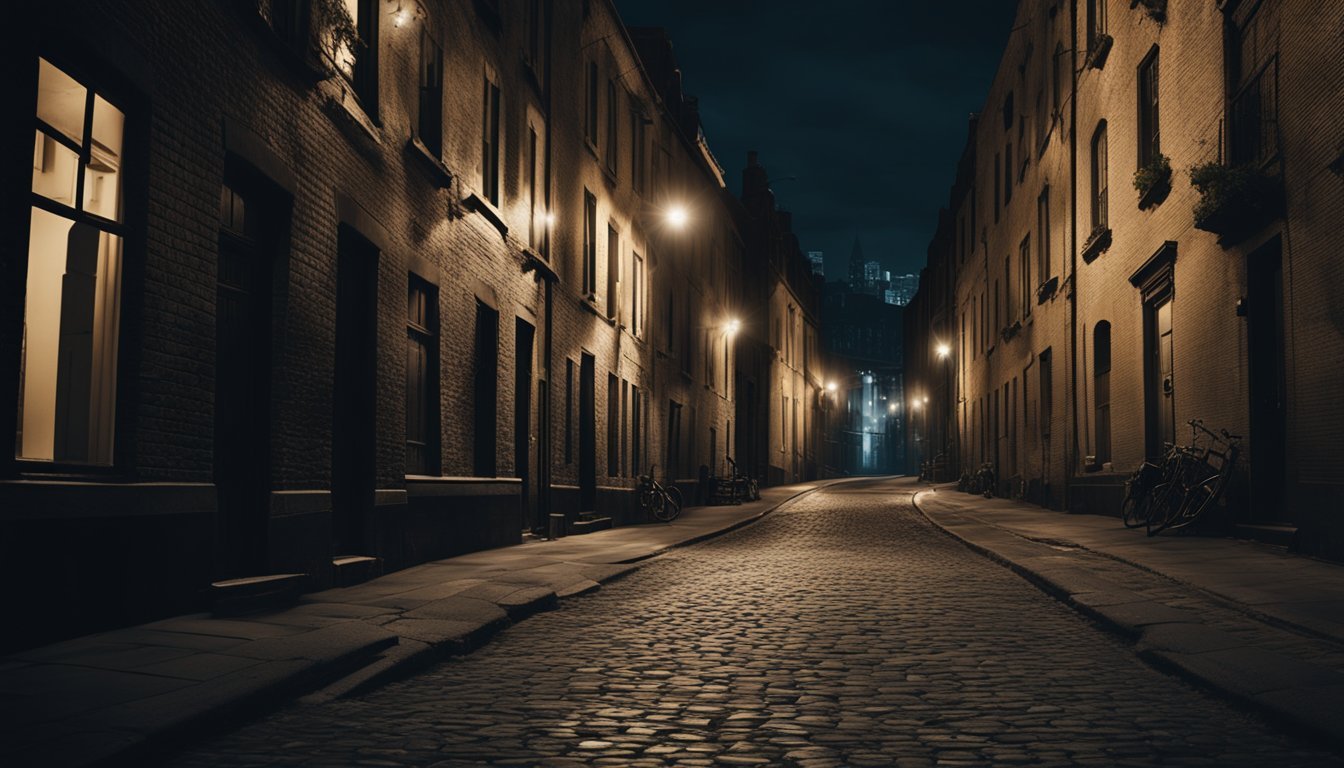7 True Crime Documentaries from Glasgow
Unveiling Shocking Cases
Glasgow, a city with a rich and complex history, has also been the backdrop for some of the most intriguing and shocking true crime stories. From unsolved mysteries to high-profile trials, these stories continue to captivate and horrify audiences. Documentaries exploring these crimes offer a compelling look into the darker side of Glasgow, bringing to life the real events that have shaped public consciousness.
These seven true crime documentaries from Glasgow will grip you with their detailed exploration of real-life horror and judicial battles. Spanning from arson attacks to mysterious disappearances, the documentaries not only recount the events but also delve into the human emotions and societal impacts surrounding these crimes.
1) The Glasgow Ice Cream Wars: A Chilling Tale
In the early 1980s, a violent gang conflict erupted in the East End of Glasgow. Known as the Glasgow Ice Cream Wars, the unusual battleground was none other than ice cream vans. These vans, seemingly innocuous, were fronts for criminal activities, including drug dealing and selling stolen goods.
This violent turf war led to numerous acts of intimidation and violence. The most notorious incident involved the fatal arson attack on the home of an ice cream van driver, resulting in the tragic deaths of six people.
The conflict highlighted the desperate measures taken by rival gangs to control valuable distribution routes. The resulting fatalities and chaos turned what appeared to be a simple business into a deadly game of power and territory.
BBC Scotland produced a documentary covering these events, shedding light on the complexities and brutal realities of the Ice Cream Wars. This program delves into the motivations and the drastic lengths to which these gangs went.
For those interested in this dark chapter of Glasgow's history, the documentary provides a detailed exploration. Check out more on Wikipedia (1980s).
2) Bible John: Scotland's Unsolved Serial Killer Case
Bible John remains one of Scotland's most mysterious and chilling unsolved cases. Active between 1968 and 1969, this unidentified serial killer is believed to have murdered three women in Glasgow. Each victim was a young brunette who had attended the Barrowland Ballroom, a popular dance hall at the time.
The first known victim was Patricia Docker, a 25-year-old nurse, found strangled and beaten in February 1968. Subsequent victims, Jemima McDonald and Helen Puttock, were discovered with similar injuries. These murders generated a massive manhunt, involving extensive investigations and numerous suspect interviews.
A significant detail in these cases is that the murderer reportedly quoted the Bible, which led to him being nicknamed "Bible John." Despite numerous efforts by police and the public, the identity of Bible John remains unknown. The case has continued to intrigue and alarm true crime enthusiasts and investigators for decades.
For those interested in exploring this case further, the BBC podcast "Bible John: Creation of a Serial Killer" (2021) offers an in-depth look at the investigation and theories surrounding these unsolved murders.
More Information
3) The Beast of Birkenshaw: Peter Manuel's Murders
Peter Manuel, often referred to as "The Beast of Birkenshaw," was a notorious serial killer in Scotland during the 1950s. Manuel's crimes shocked the region, earning him a place in the annals of true crime history.
Born in New York City in 1927 to Scottish parents, Manuel moved back to Scotland at a young age. He committed a series of brutal murders between 1956 and 1958. His destructive spree spanned across Lanarkshire and southern Scotland.
Manuel was convicted of killing seven people, although some sources suggest that his actual victim count could be higher. His victims included women and entire families, and his methods were known for their cold-blooded precision.
An important aspect that made Manuel's case particularly terrifying was the length of time he managed to evade capture. This was an era before the advent of modern profiling and forensic technology, which allowed him to continue his reign of terror longer than many other serial killers.
The media dubbed him "The Beast of Birkenshaw," a name that has since become synonymous with infamy in Scottish criminal history.
For those interested in exploring more about Peter Manuel, the true crime documentary titled "The Beast Of Birkenshaw: Scotland's Scariest Serial Killer" (available on IMDb - 2024) provides an exhaustive account of his life and crimes.
4) The Disappearance of Margaret Fleming
The Disappearance of Margaret Fleming (2020) is a gripping true-crime documentary that uncovers the mystery surrounding Margaret Fleming's vanishing.
Margaret Fleming, a 35-year-old woman, disappeared, and her carers continued to claim benefits on her behalf for 16 years. The documentary investigates the shocking details of this prolonged deception and the subsequent murder trial.
With unprecedented access to Scotland's court system, the series provides an in-depth look at how the justice system handled this complex case. Viewers witness the investigation and hear testimonies that reveal the dark secrets behind Margaret’s disappearance.
At Glasgow High Court, the two carers were accused of her murder and disposing of her body. This documentary highlights the chilling aspects of the case and the judicial process that followed.
For more details, visit IMDb.
5) The Fred West Connection: Glasgow's Grisly Link
Fred West, a notorious British serial killer, is infamously linked to a grim period of Glasgow’s history.
The documentary Fred West: The Glasgow Girls (2023) delves deeply into West’s early years, revealing his life in Glasgow during the 1960s. This three-part series by Sky Crime sheds light on his first known victims, including his first wife, Rena Costello.
Rena Costello, her daughter Charmaine, and her friend Anne McFall were closely tied to West's dark past. The series provides an intimate look at their lives and tragic ends, bringing new perspective to West’s actions before his more widely known crimes in England.
Produced and directed by a female creative team, the series highlights the challenges faced by women and girls in deprived areas of Glasgow during that era. The commitment to sensitivity and detail is clear, offering a poignant exploration rather than mere sensationalism.
The gripping nature of West's story, combined with uncovered details from his Glasgow years, makes this documentary a compelling watch for true crime enthusiasts. More on IMDb.
6) Operation French: Glasgow's Anti-Gangland Initiative
Operation French was a significant police crackdown targeting Glasgow's organized crime groups. Launched to dismantle these networks, the initiative involved extensive surveillance and coordination among multiple agencies.
Operation French focused on major gang figures involved in drug trafficking, extortion, and violent crimes. Authorities utilized undercover operations and intelligence gathering to infiltrate the gangs.
The operation led to numerous arrests and prosecutions, dealing a substantial blow to gang activities in Glasgow. Its success demonstrated the importance of sustained efforts and collaboration in combating organized crime.
For a deeper dive into this period, the documentary "Glasgow's Bloody Turf War - Glasgow Gangland" (2024) offers detailed insights. Watch on YouTube.
7) The World's End Murders: A Grim Scottish Link
The World's End Murders, as the case came to be known, gripped Scotland with fear and sadness. In October 1977, 17-year-olds Christine Eadie and Helen Scott were last seen leaving The World's End pub in Edinburgh.
Their bodies were found the next day, igniting a four-decade long search for justice.
The perpetrator, Angus Sinclair, evaded capture for years. In 2014, he was finally convicted and sentenced to life imprisonment. His crimes and the extensive efforts of law enforcement are documented in various films.
One notable documentary explores Sinclair's broader criminal activities, revealing his links to other unsolved cases.
For more details on this shocking case, you can visit the Wikipedia page.
Historical Context of Crime in Glasgow
Crime in Glasgow has a distinctive and often violent history, shaped by socio-economic factors and notable criminal figures. The city's law enforcement and legal system have evolved in response to these challenges, striving to maintain order and justice.
Early Crime Waves
Glasgow experienced significant crime waves during the 19th and early 20th centuries. The rapid industrialization led to urban overcrowding and poverty, creating fertile ground for criminal activities.
Localities like the Gorbals became infamous for gang violence and petty crimes. Many residents lived in substandard housing, which fueled desperation and crime rates.
Authorities struggled with limited resources and an inadequate police force, making law enforcement a daunting task. Over time, community initiatives and greater police presence began to mitigate some of these issues, but crime remained a persistent problem.
Notorious Crime Figures
Several notorious crime figures have left an indelible mark on Glasgow’s history. Among them, James Griffiths became infamous for his violent rampage in 1969, culminating in a deadly police showdown.
The city also witnessed the brutality of the Ice Cream Wars in the 1980s. This conflict involved feuding gangs competing for control over ice cream van territories, leading to violent clashes and tragic fatalities.
Public figures like these contributed to Glasgow's grim reputation and sparked debates about crime prevention and law enforcement strategies.
Police and Judicial Responses
The response of Glasgow's police and judicial systems has evolved significantly over the years. Early policing efforts were marred by corruption and inefficiency, but reforms gradually took root.
The establishment of specialized units targeting organized crime marked a significant shift. High-profile cases, such as the Ice Cream Wars, led to extensive legal battles and public calls for justice.
Today, modern policing techniques, community engagement, and strict legal frameworks aim to curb crime effectively. The city's approach is now more comprehensive, addressing both the symptoms and underlying causes of criminal behavior.
Analyzing True Crime Documentaries
True crime documentaries often captivate audiences with detailed investigations, striking production techniques, and significant social implications.
Common Themes and Motifs
True crime documentaries frequently explore themes of justice, corruption, and human nature. They examine the psychological factors behind criminal behavior and the impact on victims and society. These documentaries often highlight systemic issues, such as flaws in the criminal justice system, societal inequalities, and the complexities of moral judgment.
Recurring motifs include investigative journalism and police procedures. Visual motifs, such as archival footage, crime scene photos, and reenactments, are common. They serve to immerse the viewer in the narrative and provide a deeper understanding of the events.
Production Techniques
The success of true crime documentaries hinges on their production techniques. Documentaries like BBC's "Murder Case" utilize interviews with key figures such as investigators, victims' families, and even the accused. This provides multiple perspectives on the crime.
Cinematic elements like lighting, soundtrack, and pacing are crucial. Dark, moody lighting and suspenseful music often set a tense atmosphere. Engaging pacing through episodic storytelling keeps viewers hooked, unraveling the mystery step by step.
Archival materials—including news clippings, police reports, and personal diaries—aid in building a comprehensive and believable narrative. Modern technology, like digital forensics and CGI reconstructions, adds depth to investigations portrayed on screen.
Public Reception and Impact
Public reception of true crime documentaries can be profound, leading to increased awareness of specific cases and systemic issues. For instance, series like the BBC's exploration of "The Ice Cream Wars" can renew interest in long-forgotten cases, potentially prompting legal reviews or new investigations.
True crime series often spark widespread discussion and debate on social media and forums. Viewer engagement can lead to campaigns for justice, influencing public opinion and even policy changes.
These documentaries also shed light on the emotional and psychological toll on victims and their families, sometimes offering a sense of closure or justice. They play a role in societal reflection on crime, punishment, and moral values.
Insights from Criminologists and Experts
Experts shed light on Glasgow's crime history, the psychological profiles of criminals, and the societal and cultural influences shaping criminal behavior.
Expert Opinions on Glasgow's Crime History
Criminologists highlight Glasgow's reputation for high levels of violent crime. Notably, gang violence has been a persistent issue, deeply rooted in the city’s socio-economic conditions. Experts often reference the town's post-industrial decline, which exacerbated poverty and crime rates.
Academics also point to significant policing strategies and community efforts aimed at reducing crime. The interplay between law enforcement tactics and crime patterns provides critical insights. Historical precedents, like the infamous Bible John murders, are frequently analyzed for their impact on the city's criminal landscape.
Psychological Profiles of Criminals
Psychologists and criminologists delve into the minds of Glasgow's most infamous criminals to understand their motivations. Key characteristics, such as antisocial personality disorder and psychopathy, often emerge in these profiles. This exploration sheds light on how upbringing and environment influence criminal behavior.
Experts utilize case studies, including the chilling accounts from serial offenders, to illustrate these traits. Profiling tools have become essential in predicting and preventing crimes. They underscore the importance of early intervention in altering potential criminal paths, emphasizing both genetic and environmental factors.
Societal and Cultural Influences
Glasgow’s cultural fabric plays a significant role in its crime dynamics. Criminologists point out the impact of poverty, unemployment, and social exclusion as catalytic factors in crime prevalence. The city's history of sectarianism and territoriality among gangs is often highlighted to explain persistent gang wars.
Media portrayal of crime in Glasgow also influences public perception and, sometimes, crime rates. Cultural narratives around masculinity and violence perpetuate cycles of crime within certain communities. Social programs aimed at youth engagement and education are essential in breaking these cycles, according to experts. Partnerships between community organizations and law enforcement are key in this effort.







